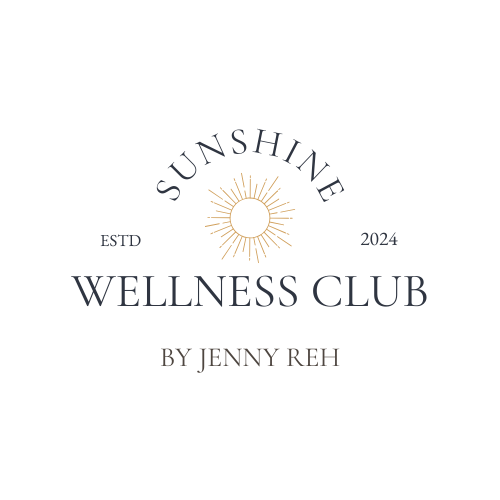Non-toxic beauty & cleaning swaps
We recognize that environmental toxins have a major effect on our overall health. While what you eat is important, achieving good gut health and a healthier lifestyle involves more than just diet. Factors such as lifestyle choices, sleep quality, stress levels, and exposure to environmental toxins all contribute significantly to your health. Here are some easy changes you can make today to foster a more non-toxic home. (Products are affiliated with Amazon)
Switch from plastic containers to glass
(phthalates (used to soften plastics) and bisphenol A, commonly referred to as BPA (used to make very hard plastic). Both are known as endocrine disruptors, which means they interfere with the body’s hormones and can potentially affect an array of biological processes such as normal growth, fertility and reproduction.)
Choose organic when possible
By checking food labels and choosing organic fruits and vegetables, you significantly reduce your family’s exposure to potentially harmful chemicals while supporting eco-friendly farming practices.
Detoxify Your House Cleaning Routine
Swap out your unattractive, harmful plastic cleaning products for a glass spray bottle. Fill it halfway with distilled white vinegar and water. This solution effectively cleans a variety of surfaces, including windows, shower scum, stainless steel, floors, mirrors, and countertops, while also serving as a natural disinfectant.
Recommended Glass Spray Bottle
Use Chemical/fragrance Free Laundry Products
Traditional laundry detergents and dryer sheets frequently include harmful substances, such as phosphates, dyes, sodium lauryl sulfate, dioxane, bleach, and fragrances, which are known carcinogens and hormone disruptors that can contribute to various diseases.
Make your own non-toxic Laundry Powder
Choose the Right Cookware
Traditional non-stick pans, while convenient, often contain chemicals that can leach into food at high temperatures. PFAS (Per- and Polyfluoroalkyl Substances), found in non-stick coatings for their water and stain resistance, pose significant health concerns, including immune system suppression and potential cancer risk.
Choose cast iron, stainless steel, glass, or ceramic cookware
Use a Water Filter
Tap water may contain a range of contaminants, including heavy metals, chlorine, and pesticides. The EPA identifies several drinking water contaminants that could pose risks, such as microbial contaminants, lead, nitrates, nitrites, arsenic, disinfection byproducts, pesticides, and solvents. These substances can be detrimental to human health, particularly for children.
Choose Toxin-Free Beauty Products
Mainstream cosmetics frequently contain chemicals and synthetic ingredients that your skin may absorb. The potential health risks associated with these harmful substances in beauty products include endocrine disruption (where endocrine disruptors interfere with hormones), as well as issues related to brain function, development, reproduction, and even cancer.
I enjoy using the Think Dirty app. It allows you to scan your existing beauty products to assess their cleanliness. If you're on the lookout for new options, you can explore their curated list of clean products for hair, skin, and makeup.
Switch to Natural Fiber Textiles
Numerous traditional fabrics used in clothing and bedding, particularly synthetics, are often treated with chemicals that can off-gas or seep into your skin. Choose natural fibers such as organic cotton, linen, hemp, or bamboo for your bedding, towels, and apparel. These options are devoid of harmful chemicals and are more sustainable and biodegradable. Making this switch guarantees that your skin—the body's largest organ—comes into contact with safer, more breathable materials.
Opt for Eco-Friendly Personal Hygiene Products
Did you know that many of your trusty hygiene pals like toothpaste, shampoo, and deodorant are sneaky little chemical cousins of cosmetics? Yup, they can totally sneak into your system through your skin or those delicate membranes! So, why not go for the good stuff? Grab products packed with natural ingredients and ditch the sulfates, parabens, and those funky artificial fragrances! Your skin will thank you!
Switch to Natural cooking utensils
BPA, or Bisphenol A, is that sneaky chemical lurking in some plastics, especially polycarbonate. It's like a party crasher for your hormones, and people are definitely not inviting it to dinner! When things heat up in the kitchen, there's a chance BPA could seep into your food, sending many on a quest for safer cooking gear to dodge those health hiccups. Time to banish those pesky plastics!
Organic & fair-trade coffee
Organic fair-trade coffee is like the superhero of the coffee world, sporting two shiny badges: organic certification and fair-trade certification! The organic badge means this java is grown without the nasty synthetic pesticides, herbicides, or chemical fertilizers, giving a high-five to soil health, biodiversity, and keeping our planet happy for the long haul!
Whole Food VS Processed
It's well-known that whole foods—such as fruits, vegetables, legumes, seeds, eggs, proteins, and healthy fats like olives, nut butter, and olive oil—are significantly healthier than processed options. In contrast, ultra-processed foods are loaded with chemicals, lack satisfying qualities (which explains why we can easily consume an entire bag of chips), provide minimal nutrients, and often lead to overeating.
Plastics pose a risk, and the danger increases when they are heated. When warmed, these harmful toxins can leach into our food and enter our bodies.
Important Considerations:
- Plastic toys to entertain your children during a cozy bath
- Your coffee filter could be made from plastic
- K-cups contain plastic and are exposed to heat
- Plastic containers or lids in the dishwasher can heat up, releasing toxins onto your dishware
- The lid of your Yeti tumbler is plastic when you add hot items inside
- Common plastic toys that your little one might put in their mouth
- Plastic plates used for serving hot meals, particularly for young children
